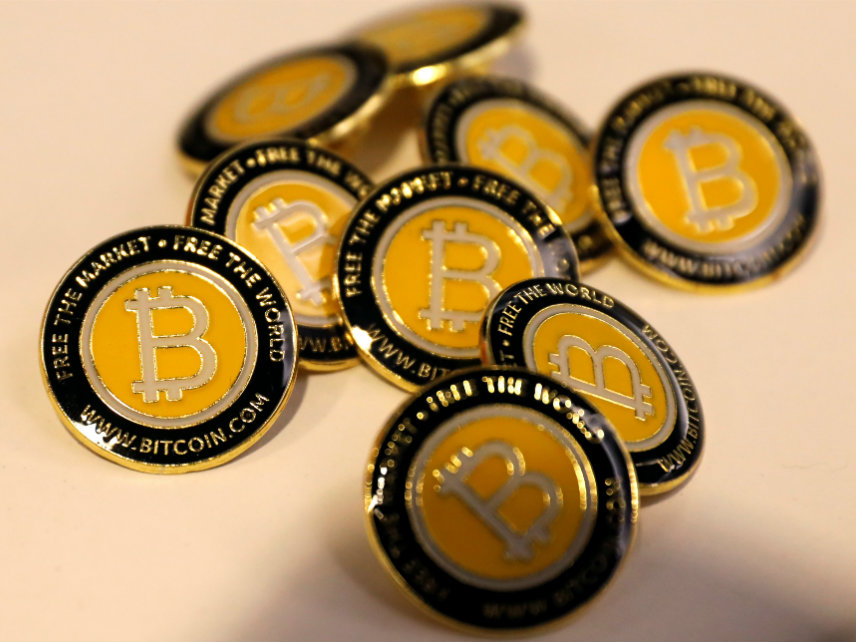Can the Blockchain Save Democracy?
Voting on the blockchain could end worries about voter fraud and election hacking.

Bitcoin has revolutionized money. Now the technology behind bitcoin could change how we conduct elections too.
At least that's what Voatz wants to do. This Boston-based startup claims that it can use blockchain technology to bring greater security and privacy to the democratic process.
Jonathan Johnson—president of Medici Ventures, the venture capital firm that invests in Voatz—claims the blockchain can improve what he says is a terribly inefficient electoral system. In a talk at the conservative Heritage Foundation this week, Johnson said it could usher in an era of "remote, digital, safe and secure voting."
The blockchain is a sort of a decentralized digital ledger, allowing data to be stored on many servers rather than on one server, as is customary on the World Wide Web. Anyone on the blockchain network has access to this data, which acts as a bulwark against centralized control and malevolent hackers.
Voatz thinks this can address ongoing concerns about the accuracy of American elections, as different groups worry about everything from Russian hackers to padded voting rolls.
For example, two counties in West Virginia used the software this year to allow active-duty soldiers stationed abroad to participate in the primaries without forfeiting their right to a private ballot. Using biometric scanners to verify identity, county clerks were able to send the correct ballots to the soldiers, who then selected the candidates of their choice, all on their phones. For the first time ever, voters were able to see that their vote was counted for who they voted for, all while protecting the privacy of the voter.
After raising a whopping $2.2 million, Voatz worked with West Virginia for their pilot project during the May 8 primary. Johnson expects Voatz to soon be adopted statewide for active-duty soldiers.
Voting on the blockchain could alleviate concerns for people across the political spectrum. Conservatives genuinely concerned with voter fraud can rest easy knowing that the blockchain is extremely difficult to hack, by virtue of its decentralization—and that with biometrics, voter fraud is virtually impossible. Leftists worried about voting access will be happy to hear that the system would let anyone with a smartphone vote quickly and easily, even on workdays.
And libertarians should be pleased to see an increase in government transparency. Citizens will finally be able to make sure their votes go to the candidate they voted for, as opposed to merely hoping that the government, an institution with a reputation for incompetence, is handling their ballots responsibly.
